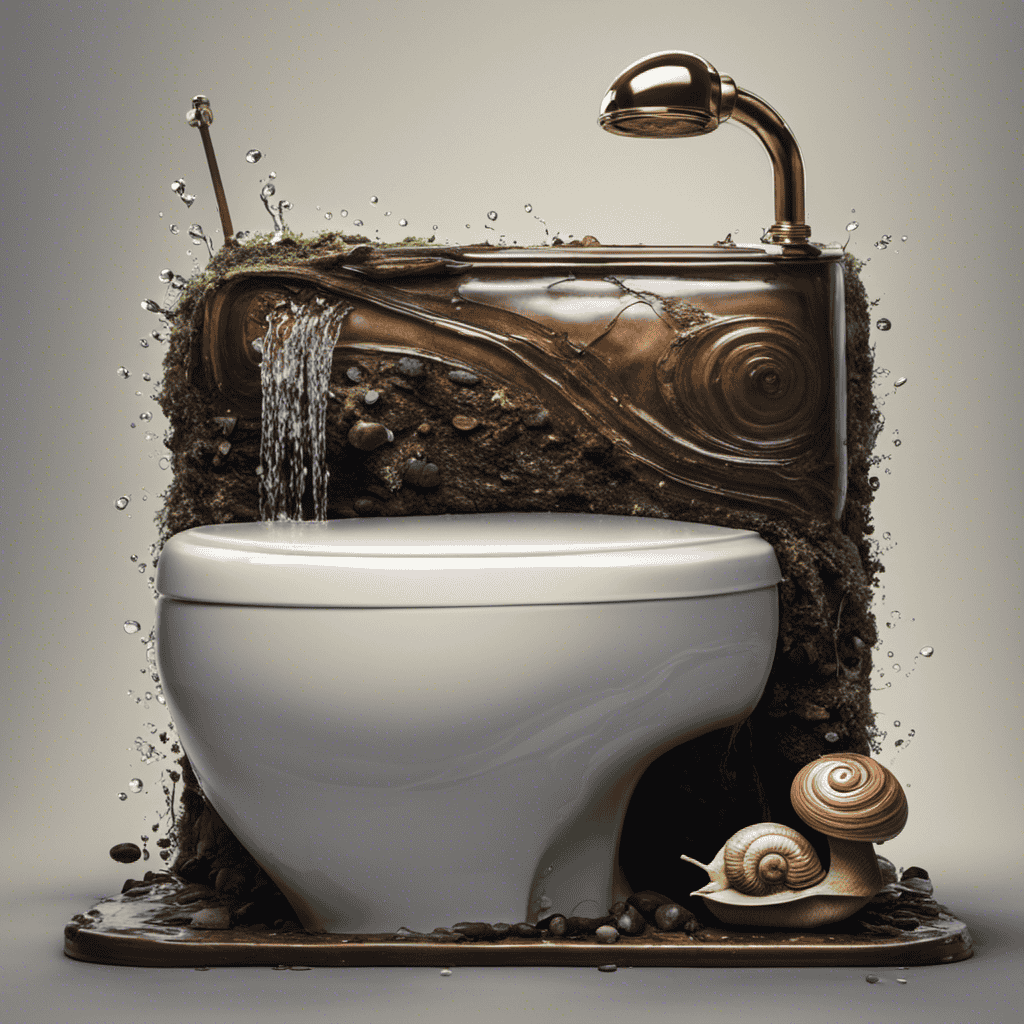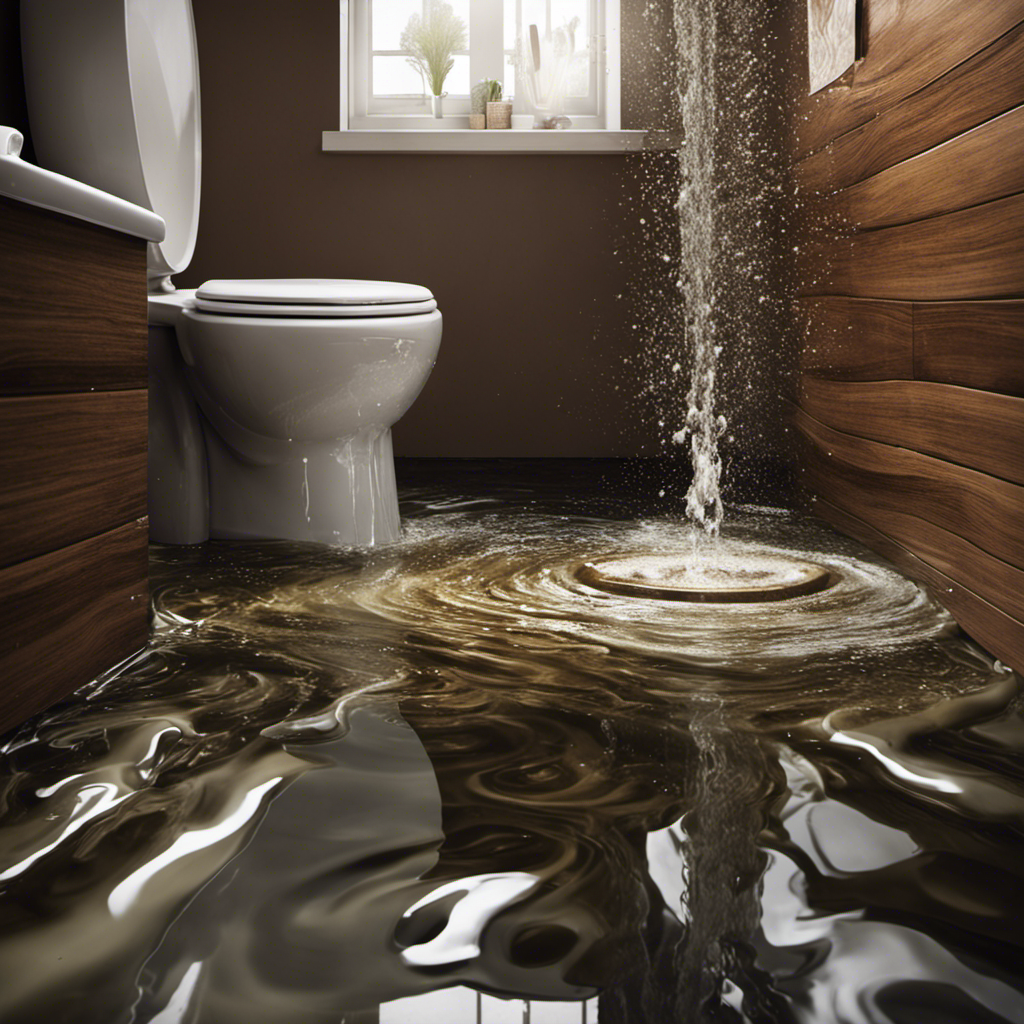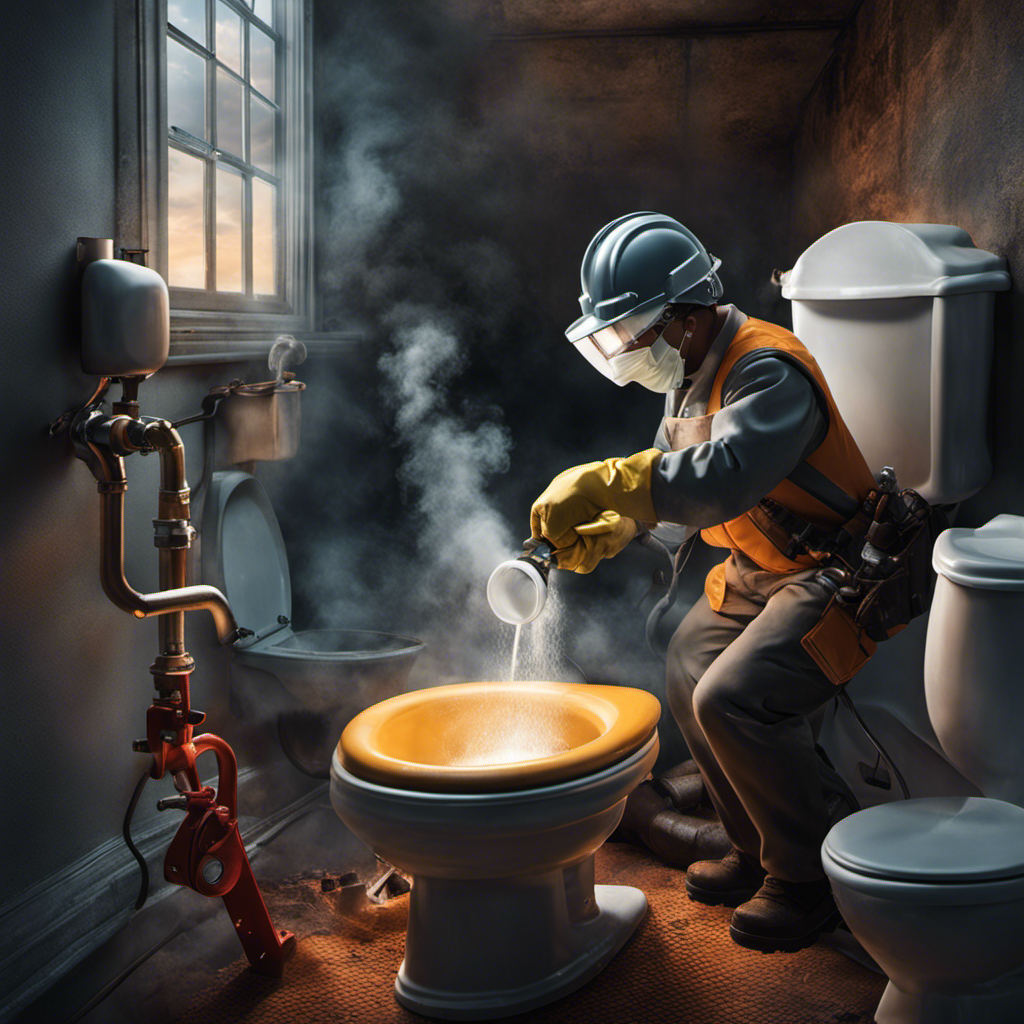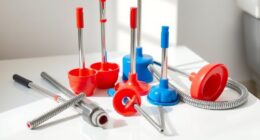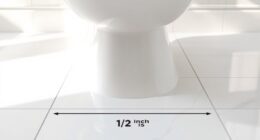We’ve all done it – flushed a baby wipe down the toilet without a second thought. But did you know that this seemingly harmless act can have significant consequences?
In fact, flushing baby wipes down the toilet can lead to plumbing clogs, sewage system backups, and even environmental damage.
In this article, we’ll explore the risks of flushing baby wipes and discuss safer alternatives for disposing of them. So before you reach for that flush handle, let’s dive into the facts and make an informed decision.
Key Takeaways
- Flushing baby wipes can cause plumbing clogs and sewage system backups.
- Baby wipes can lead to environmental damage and marine pollution.
- Proper disposal of baby wipes is crucial to prevent risks and promote sustainability.
- Safer alternatives for disposing of baby wipes include using biodegradable wipes and disposing of them in a sealed bag in the regular trash.
The Risks of Flushing Baby Wipes
There are significant risks associated with flushing baby wipes down the toilet. Not only can it cause damage to the plumbing system, but it can also pose risks to the baby’s skin and potential health hazards.
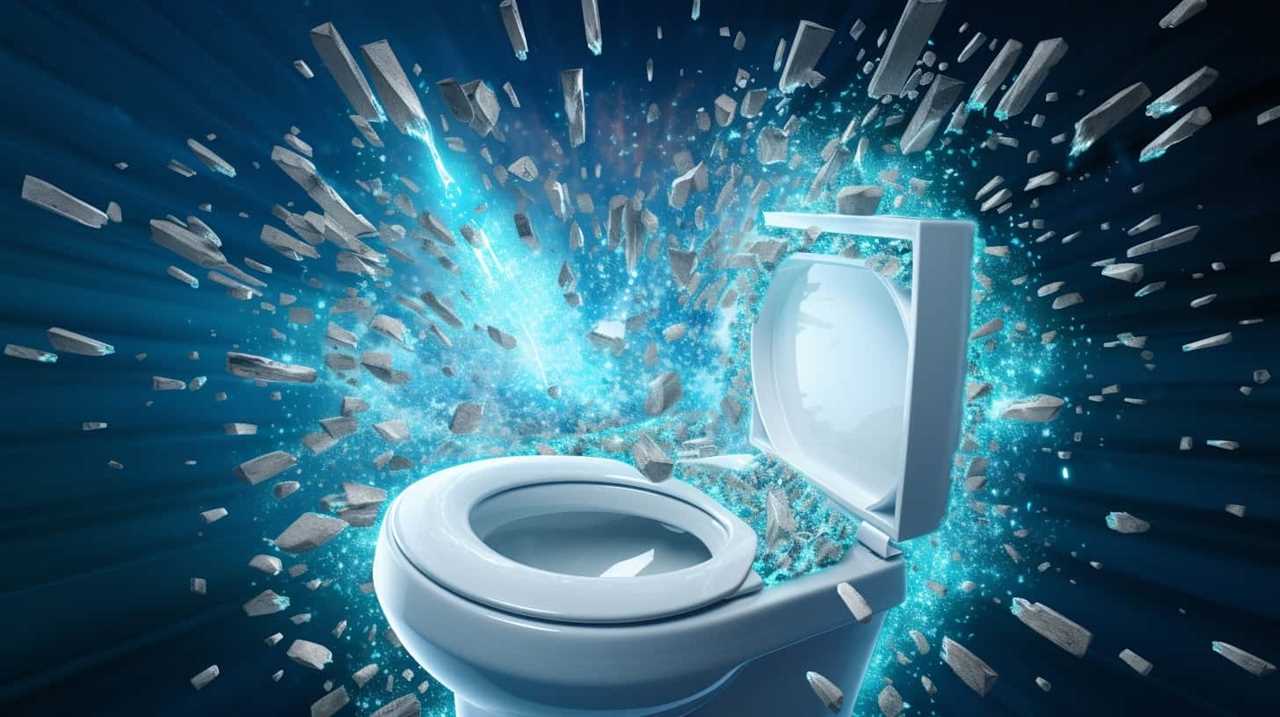
Baby wipes are designed to be used on the skin and are often made with materials that aren’t easily biodegradable. When flushed, they can clog pipes and lead to costly repairs. Moreover, these wipes may contain chemicals that can irritate a baby’s delicate skin, leading to rashes or even allergic reactions.
In addition, if these wipes make their way into sewage systems, they can contribute to the formation of fatbergs, which are massive blockages that can cause sewer backups and environmental pollution.
Therefore, it’s crucial to dispose of baby wipes properly in the trash to prevent these risks and protect both the plumbing system and the baby’s well-being.
Impact on Plumbing and Sewage Systems
What impact do flushing baby wipes down the toilet have on our plumbing and sewage systems? Flushing baby wipes down the toilet can cause significant plumbing damage and incur high costs for repairs. These wipes are not designed to break down quickly like toilet paper, which can lead to clogged pipes and blockages in the sewage system. The non-biodegradable materials in baby wipes can accumulate over time, causing serious plumbing issues that require professional intervention. Not only does this result in inconvenience and potential health hazards, but it also puts a strain on the sewage infrastructure. To emphasize the consequences, consider the following table:
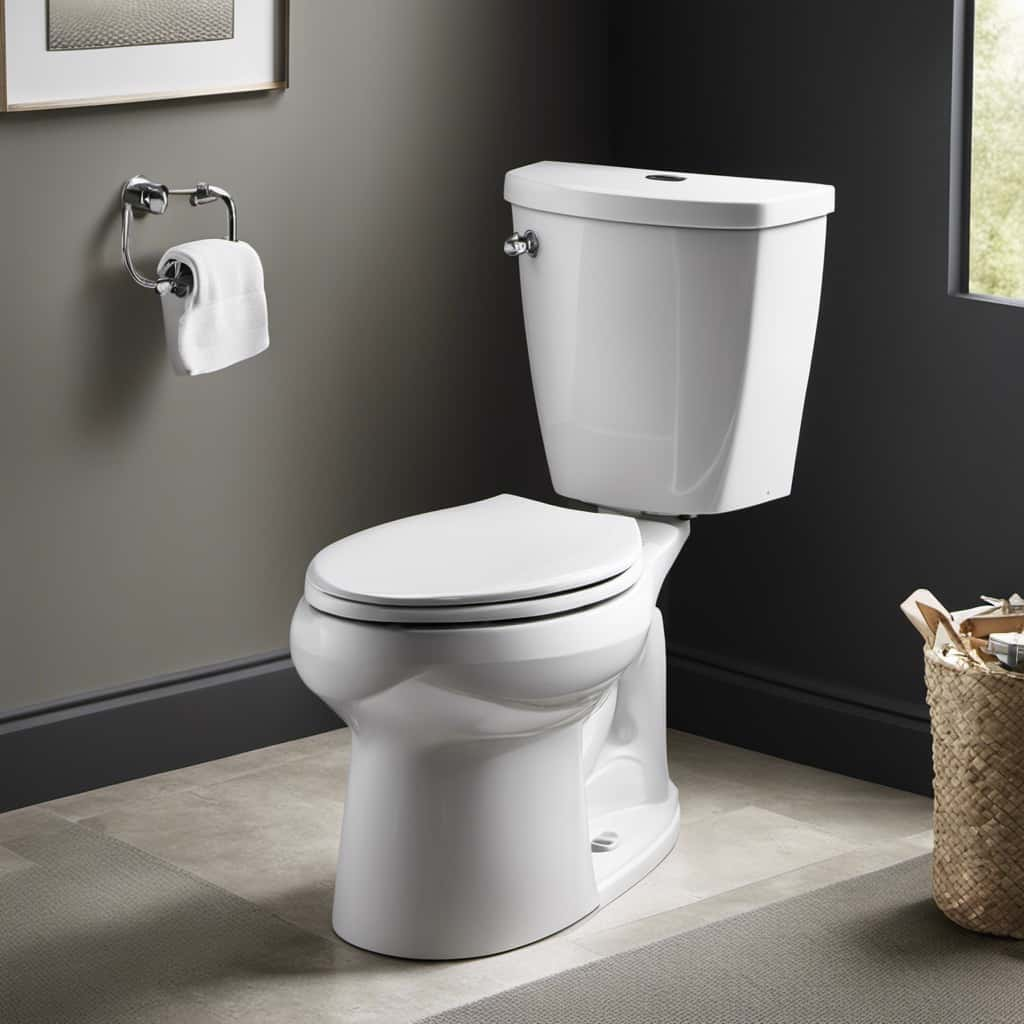
| Impact of Flushing Baby Wipes on Plumbing and Sewage Systems |
|---|
| Clogged Pipes |
| Blockages in Sewage System |
| High Costs for Repairs |
Environmental Consequences of Flushing Wipes
Flushing baby wipes down the toilet not only has detrimental effects on our plumbing and sewage systems, but it also poses significant environmental consequences.
One of the major environmental consequences is marine pollution. When baby wipes are flushed, they can end up in rivers, lakes, and eventually the ocean. These wipes aren’t biodegradable and can persist in the marine environment for years, harming marine life and ecosystems.
Additionally, the flushing of wipes contributes to microplastic contamination. Microplastics are tiny plastic particles that are harmful to marine organisms, as they can be ingested and accumulate in their bodies. This not only affects the health of marine animals but also has the potential to enter the food chain, posing risks to human health.
Therefore, it’s crucial to properly dispose of baby wipes in the trash instead of flushing them to minimize marine pollution and microplastic contamination.
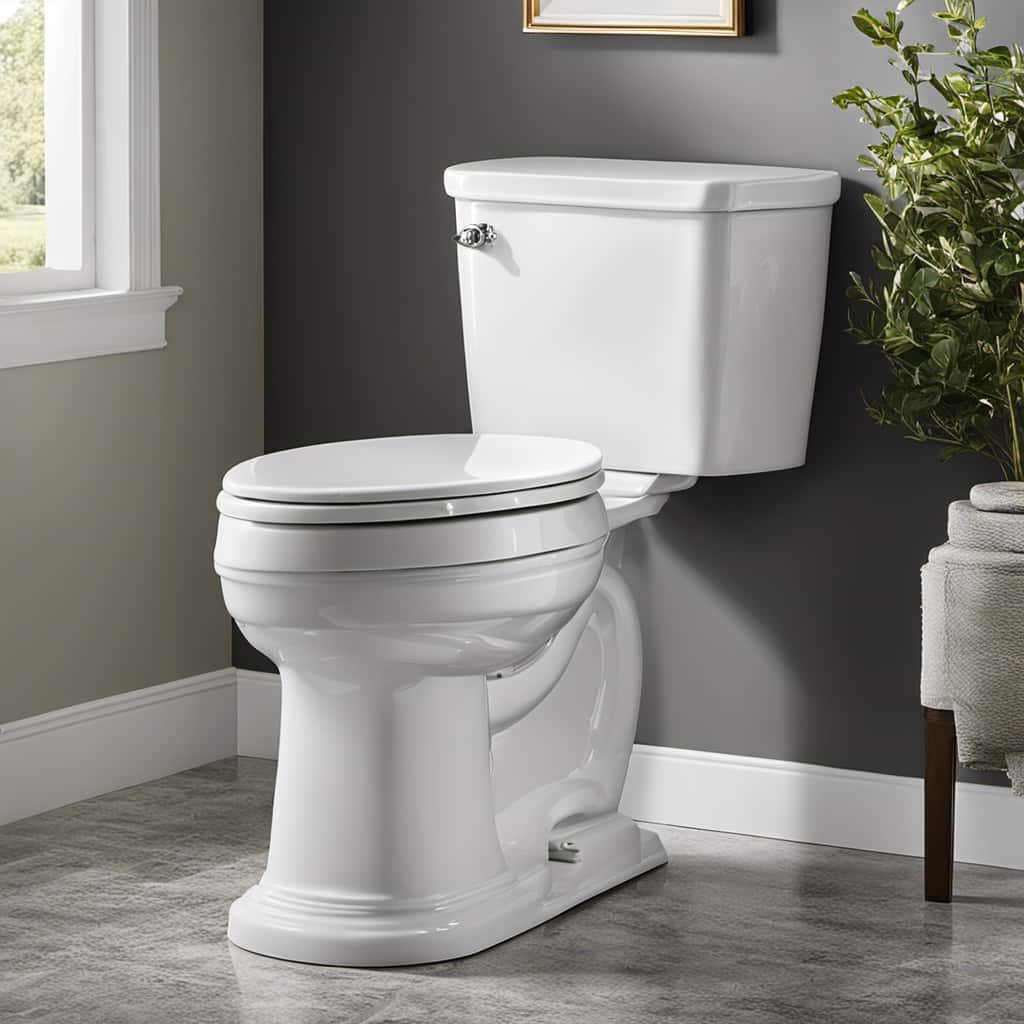
Safer Alternatives for Disposing of Baby Wipes
To ensure proper disposal of baby wipes, we should consider using alternative methods instead of flushing them down the toilet. Here are four safer alternatives for disposing of baby wipes:
- Biodegradable options: Look for baby wipes that are labeled as biodegradable. These wipes are designed to break down more easily in the environment, reducing their impact on landfills and water systems.
- DIY cloth wipes: Consider using cloth wipes instead of disposable ones. You can make your own by cutting up old t-shirts or receiving blankets into small squares. Cloth wipes aren’t only more environmentally friendly, but they can also be gentler on your baby’s skin.
- Trash disposal: After use, place the baby wipes in a plastic bag and dispose of them in the regular trash. This ensures that they won’t clog your toilet or harm the sewer system.
- Dedicated disposal bins: Some companies offer dedicated disposal bins for baby wipes. These bins are specifically designed to handle the disposal of wipes and prevent them from causing plumbing issues.
Proper Disposal Methods for Used Wipes
When it comes to disposing of used wipes, it’s important to prioritize proper methods to prevent any potential harm.
One of the best options for disposal is to choose biodegradable wipes. These wipes are designed to break down naturally over time, reducing their impact on the environment. By opting for biodegradable options, we can promote sustainability and minimize waste.
Additionally, it’s crucial to follow proper hygiene practices when disposing of used wipes. This includes avoiding flushing them down the toilet, as they can clog pipes and contribute to sewer and septic system issues. Instead, used wipes should be placed in a sealed bag and thrown into the trash.
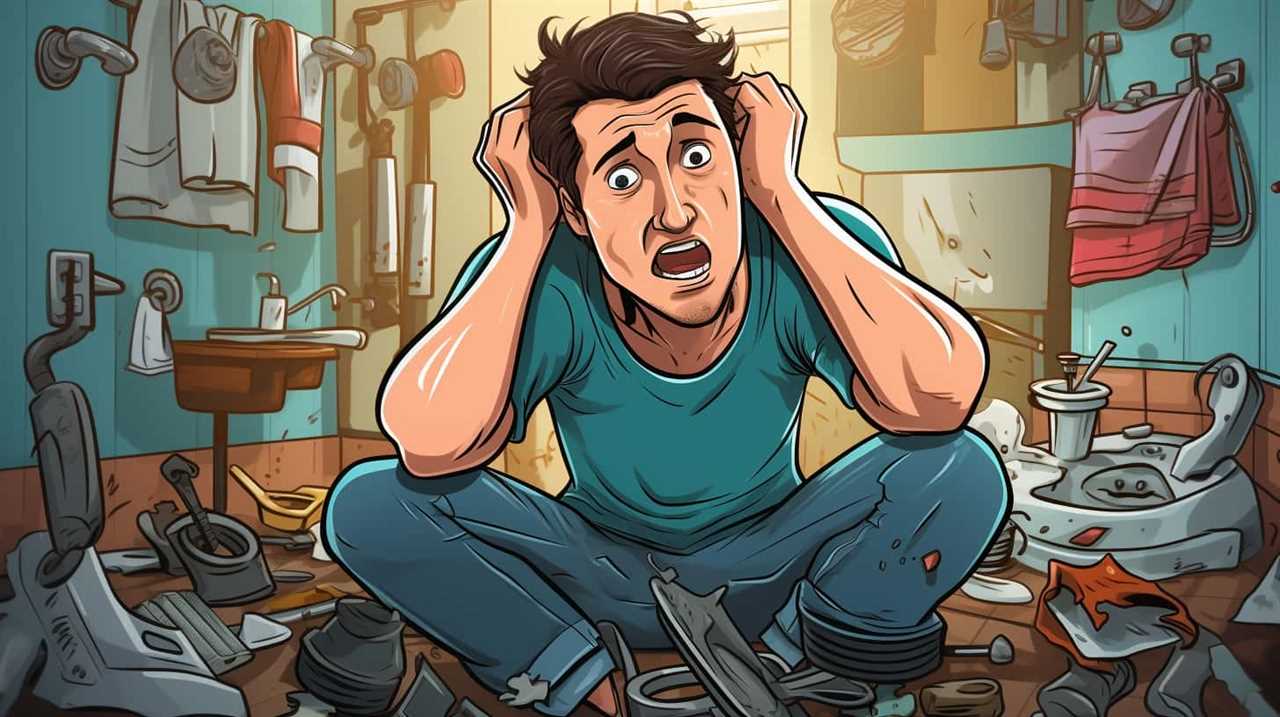
Frequently Asked Questions
How Do Baby Wipes Affect Septic Systems?
When considering the impact of baby wipes on septic systems, it is important to understand how to dispose of them properly. Flushing baby wipes can have detrimental effects on the environment and can lead to costly and damaging septic system issues.
Can Flushing Baby Wipes Cause Clogs in Household Plumbing?
Flushing baby wipes down the toilet can cause clogs in household plumbing. Despite their convenience, it’s important to consider the potential damage they can cause and the negative environmental impact they have.
Are There Any Potential Health Risks Associated With Flushing Baby Wipes?
There may be potential health risks associated with flushing baby wipes. It is important to consider the potential environmental impact and explore alternative disposal methods to ensure the wellbeing of both our health and the environment.
What Are the Consequences of Flushing Baby Wipes on Water Treatment Systems?
Flushing baby wipes down the toilet can have severe consequences on water treatment systems. The impact on the environment is significant, particularly on marine life. It’s essential to be aware of the harm caused and dispose of them properly.

Are There Any Specific Regulations or Laws Regarding the Disposal of Baby Wipes?
There are specific regulations and laws regarding the disposal of baby wipes. It is important to follow these guidelines to ensure proper waste management and prevent damage to plumbing and water treatment systems.
Conclusion
In conclusion, it isn’t okay to flush baby wipes down the toilet. Doing so can lead to costly plumbing issues and cause damage to sewage systems.
Additionally, the environmental consequences of flushing wipes are significant, as they contribute to clogs and blockages in water treatment facilities. A real-life example of the impact of flushing wipes is the case of a city in California that spent over $1 million in repairs due to clogged sewer pipes caused by flushed wipes.
It’s crucial to dispose of baby wipes properly to avoid these problems.


